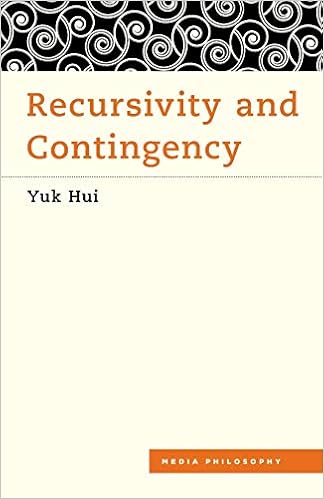Biennale de Varsovie
Organisation : Michal Krzykawski
How to reorganize silicon technologies in the age of disruption ?
Panel discussion : Anne Alombert, Gaël Giraud, Michal Krzykawski, Daniel Ross
The ideologues and marketers of what is referred to as ‘digital disruption’ tell us that we need to adapt to the accelerating rhythm of technological development under the pretext that contemporary societies largely accept digital technologies. The digital transformation, as they say, is ineluctable: we cannot negotiate with ‘the law’ of disruption, which will soon hit workplaces, public health, schools, universities, cities and states. Instead, what we are asked to do as individuals, organisations and societies is to show ‘resilience’ and to survive this change in the name of the so-called ‘long-life learning’ (also known as 24/7 capitalism). How could we challenge this technocratic accelerationist ideology of digital disruption and reorganise silicon technologies in order to produce some kind of a counter-disruption?
This panel will address this question drawing on several issues discussed in the book Bifurcate. ‘There Is No Alternative’, edited by Bernard Stiegler and the Collective Internation, London, Open Humanities Press, 2021 (trans. Daniel Ross).
Lecture : Yuk Hui
In 1914, when Henri Bergson addressed the outbreak of the First World War, he claimed that Germany’s turn towards industrialism and mechanism was accountable for the war, because instead of “spiritualization of matter,” it produced a “mechanisation of spirit.” Later in The Two Sources of Morality and Religion (1932), Bergson further stated that wars of the modern time are bound up with industrial characters of the civilization. Bergson’s analysis has little to do with modern military machines, but rather it concerns the relation between human and technology, or in other words, war is result of the “conflict of organs.” In 1948, Norbert Wiener in his Cybernetics, or Control and Communication in the Animal and the Machine responded to Bergson by claiming that the opposition between mechanism and vitalism belongs to a badly posed question because it is now overcome by cybernetics. Did this evolution of machines affect the critique of Bergson? How should we reconsider the relation between war and machine today?
The second part of the meeting will feature a discussion around Yuk Hui’s book Recursivity and Contingency, published in Polish by The University of Silesia Press, whose Polish premiere coincides with the second edition of the Biennale. The meeting with the author and the discussion around such notions as cosmotechnics and technodiversity will be led by Michał Krzykawski.

Screening of David Barison and Daniel Ross’s film
The Ister is a documentary film made in 2004 by David Barison and Daniel Ross, loosely referring to the works of Martin Heidegger, in particular to the lectures Hölderlins Hymne Der Ister (1942–1984), devoted to Hölderlin’s poem Der Ister. It is a record of the journey upstream Danube, towards its sources, and at the same time a documentation of the discussion on Heidegger, Hölderlin and philosophy. The film touches also on numerous other topics, such as time, poetry, technology, home, war, politics, myth, national socialism, the Holocaust, ancient Greek polis, Sophocles, Antigone, Agnes Bernauer, Edmund Husserl, the Battle of Vukovar in 1991 and NATO’s bombardment of Yugoslavia in 1999. The Ister features extensive interviews with French philosophers Bernard Steigler, Jean-Luc Nancy and Philippe Lacoue-Labarthe as well as German film director Hans-Jürgen Syberberg. The film premiered at the Rotterdam International Film Festival in 2004.
